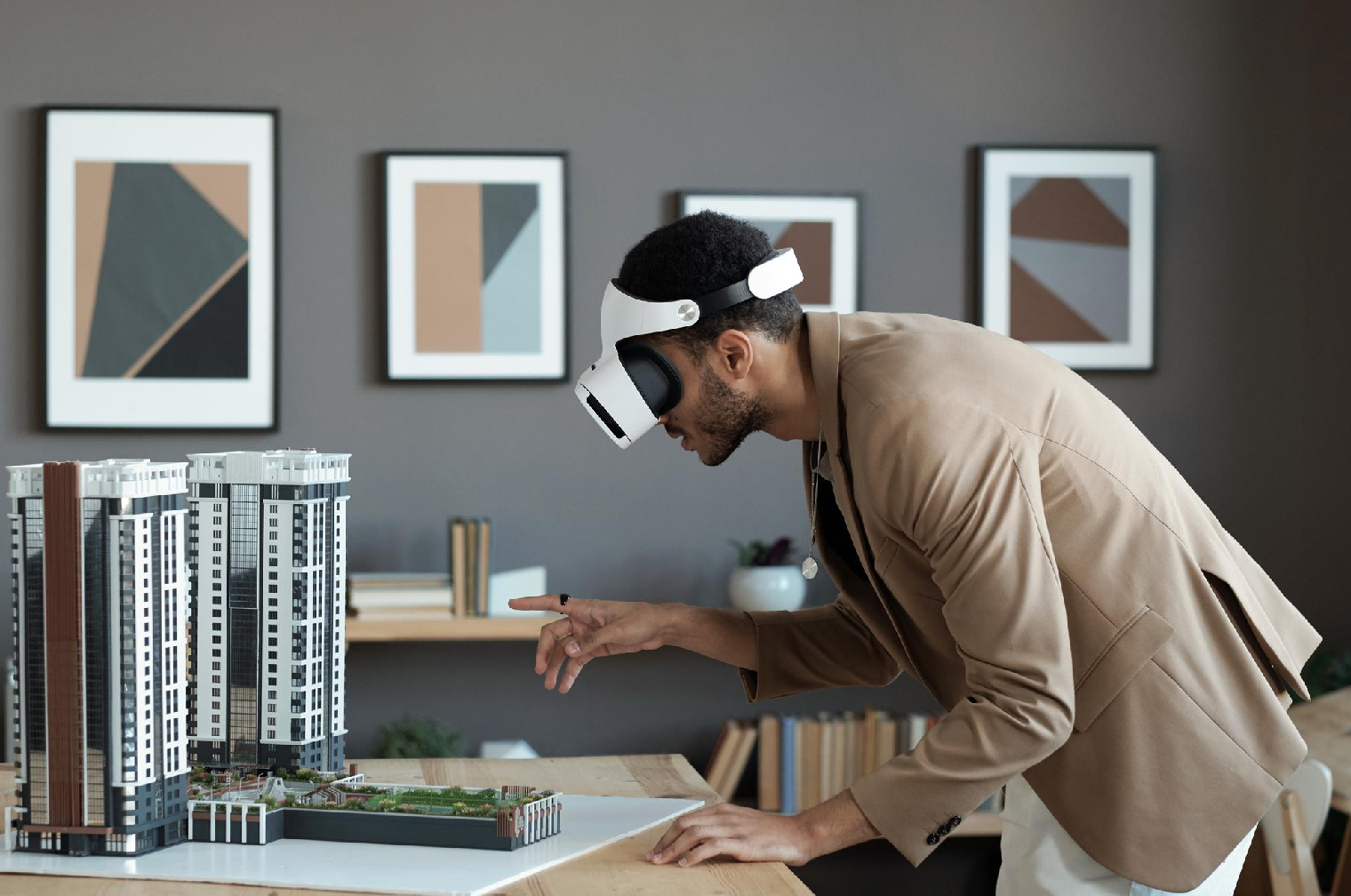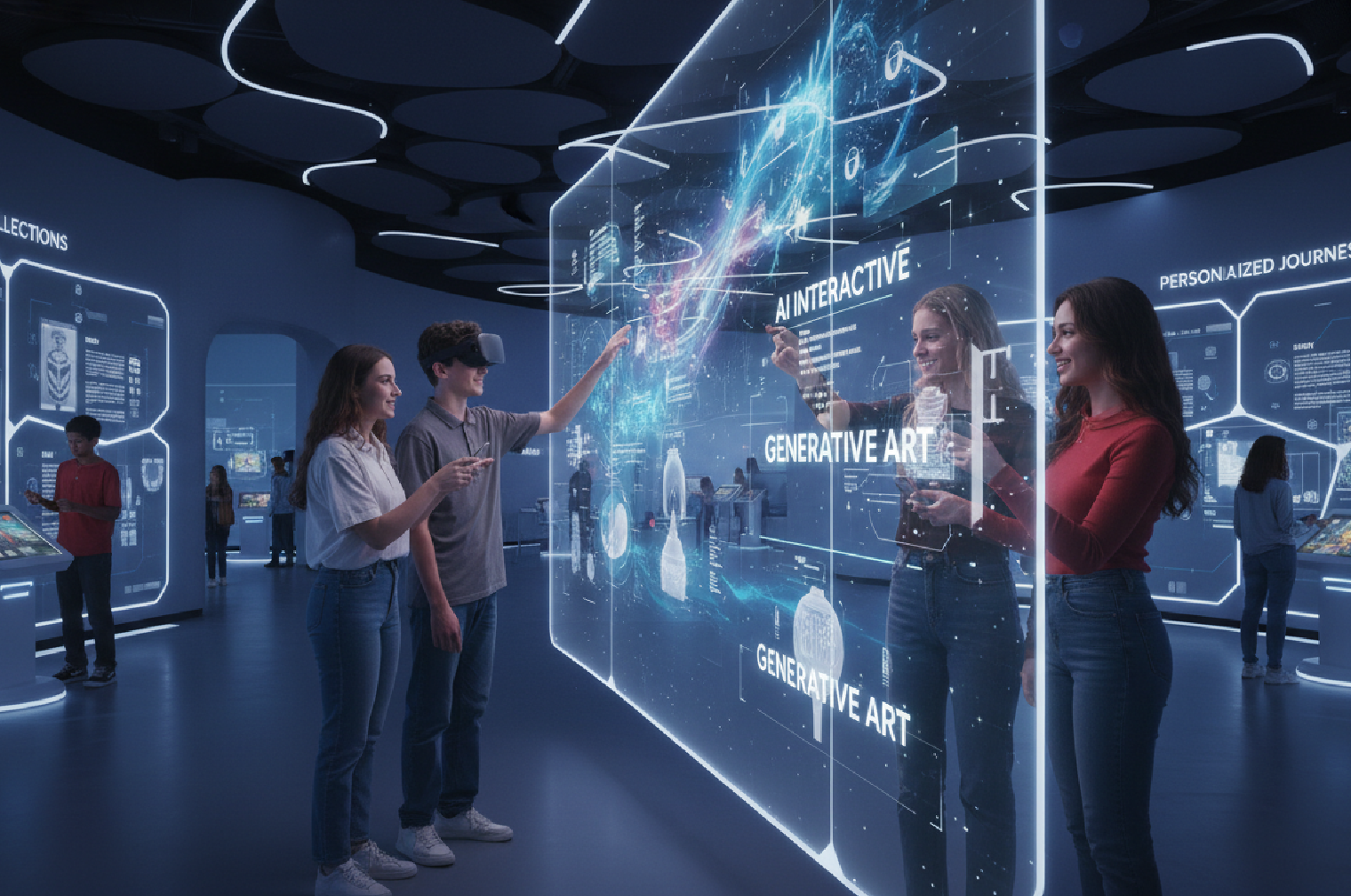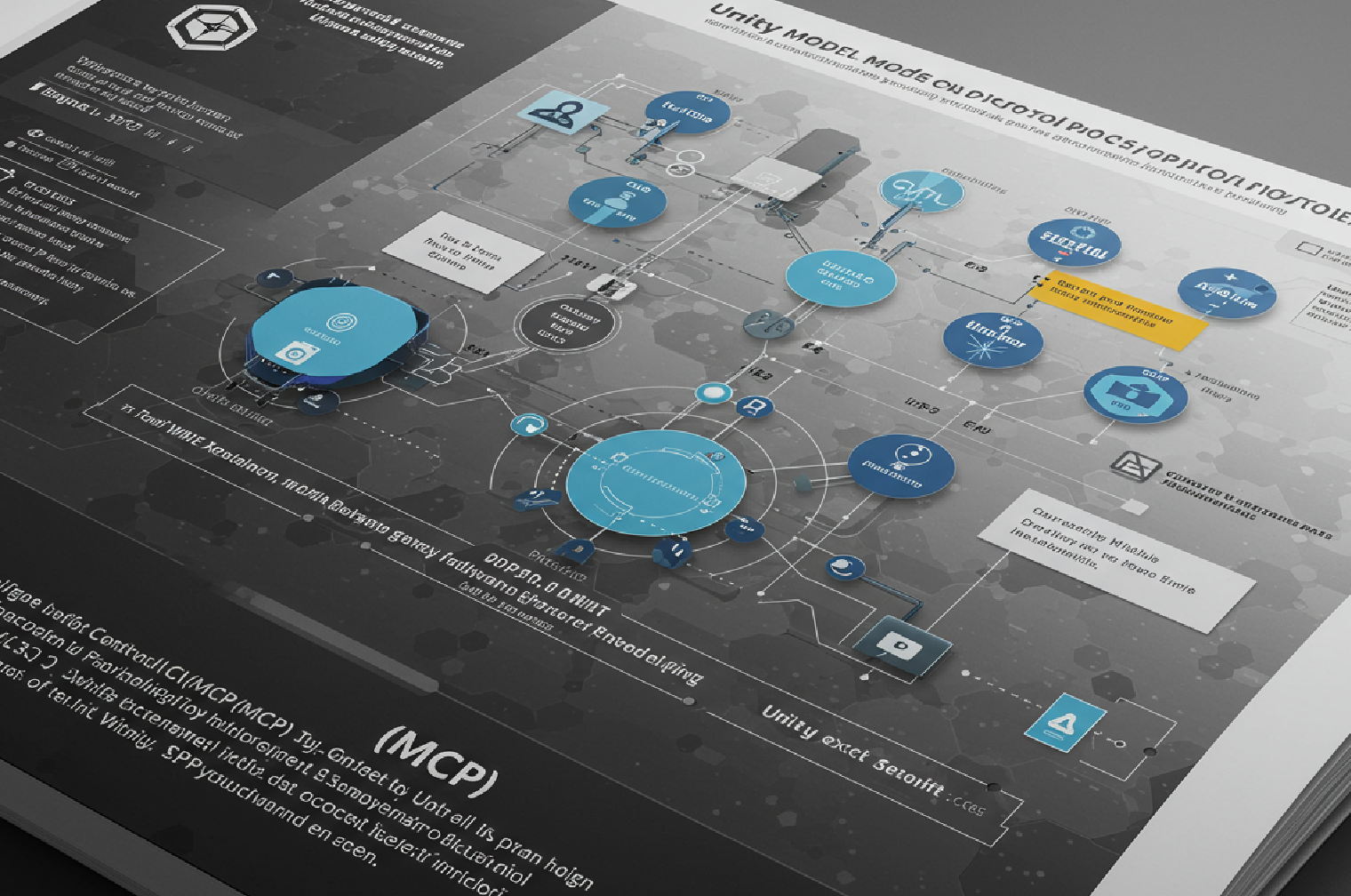Machine Learning and AI for revolution of Tech Companies are changing and streamlining businesses.
Digital experiences in real estate are no longer a luxury but a necessity for businesses looking to thrive in this competitive market. As buyers increasingly turn to online platforms to begin their property search, real estate companies must create engaging, immersive, and personalized digital journeys to capture their attention and guide them toward a successful transaction.
According to the 2023 Home Buyers and Sellers Generational Trends Report, a staggering 96% of home buyers utilize the internet to search for homes. This demonstrates the critical importance of establishing a robust online presence and delivering exceptional digital experiences in real estate to meet customers where they are.
What Is the Customer Journey in Real Estate?
A customer journey map is a visual representation of every interaction a customer has with a product, service, or brand. In real estate, this map encompasses all stages, from initial inquiry to post-sale support. Understanding this journey is crucial for identifying key touchpoints and optimizing the overall customer experience.
Stages of the Real Estate Customer Journey
- Awareness: The customer becomes aware of their need for a new property and begins initial research online.
- Consideration: The customer explores different properties, compares options, and seeks more detailed information.
- Decision: The customer narrows down their choices, visits properties, and makes a final decision.
- Purchase: The customer completes the transaction, secures financing, and finalizes the purchase.
- Post-Purchase: The customer receives ongoing support, manages their property, and potentially becomes a repeat customer or advocate.
Digital Transformation in Real Estate
Digital transformation refers to integrating digital technologies across all aspects of a business to improve processes, customer experiences, and overall efficiency.
In real estate, this transformation encompasses several key areas:
- Enhanced Customer Experience: Digital tools enable 24/7 access to property listings, allowing customers to search independently and schedule viewings at their convenience.
- Personalization: Companies can tailor their offerings based on individual customer preferences, enhancing satisfaction and loyalty.
- Streamlined Operations: Automation of routine tasks reduces manual work for agents, allowing them to focus on building relationships with clients.
- Data-Driven Decision Making: Real-time analytics empower firms to make informed decisions based on market trends and consumer behavior.
The potential economic impact of digital transformation in real estate is substantial. According to McKinsey, the industry could see productivity gains ranging from $110 billion to $180 billion through the adoption of generative AI technologies alone.
Discover Digital Experiences in Real Estate
Explore how our solutions transform customer journeys.
The Role of Immersive Technologies
Immersive technologies such as VR and AR play a crucial role in enhancing digital experiences in real estate. These tools allow potential buyers to visualize properties in ways that traditional marketing methods cannot achieve.
Virtual Reality Tours
VR technology enables prospective buyers to take virtual tours of properties from anywhere in the world. This immersive experience provides a realistic view of the property’s layout and features, significantly reducing the time spent on physical showings. Statistics show that 42% of real estate professionals use VR tools for property tours, illustrating its growing importance in the industry.
Augmented Reality Applications
AR applications can overlay digital information onto physical spaces, allowing customers to visualize how a property might look with different furnishings or renovations. This capability fosters emotional connections between buyers and properties, making them more likely to proceed with a purchase.
Interactive Touchpoints
Creating interactive touchpoints throughout the customer journey is vital for maintaining engagement. For instance, using LED walls or touchscreen displays at property showings can provide dynamic presentations that highlight key features and amenities.
Personalizing the Customer Journey
Personalization is a cornerstone of effective digital experiences in real estate. By leveraging data analytics and AI, companies can create tailored experiences that resonate with individual clients.
Customer Journey Mapping
Mapping out the customer journey allows businesses to identify key touchpoints where they can enhance interactions. By understanding each stage—from initial inquiry through post-sale support—real estate firms can optimize their processes and communication strategies.
Utilizing Data Analytics
Data analytics tools enable companies to gather insights into customer behavior and preferences. This information can be used to personalize marketing efforts, ensuring that clients receive relevant property recommendations based on their unique needs.
Implementing AI Solutions
AI-driven chatbots can provide instant responses to customer inquiries, improving engagement while freeing up agents’ time for more complex interactions. Furthermore, AI can analyze market trends to offer predictive insights that help clients make informed decisions.
Building an Integrated Digital Ecosystem
To maximize the benefits of digital experiences in real estate, companies must create integrated digital ecosystems that facilitate seamless interactions between all stakeholders involved in property transactions.
Cloud-Based Solutions
Implementing cloud-based platforms allows for centralized data management and streamlined communication between agents, buyers, sellers, and other parties involved in transactions. This approach enhances transparency and efficiency throughout the buying process.
Smart Contracts and Blockchain Technology
Blockchain technology offers secure transaction methods through smart contracts that automate various aspects of property deals. This innovation reduces paperwork while enhancing trust between parties involved in transactions. Our solution, EveryCRED, can perfectly be used here.
Real-Time Transaction Tracking
Real-time tracking tools provide visibility into transaction progress for all parties involved. This transparency helps manage expectations and fosters trust among clients who are often anxious during significant financial decisions like purchasing a home.
Mobile Applications
With mobile devices becoming integral to daily life, developing user-friendly mobile applications is crucial for enhancing digital experiences in real estate.
Mobile-Friendly Platforms
Over 80% of potential homebuyers begin their property search using mobile apps. Therefore, ensuring that your platform is optimized for mobile use is essential for reaching this audience effectively.
Features That Enhance User Experience
Incorporating features such as virtual tours, interactive floor plans, and real-time communication capabilities within mobile applications significantly improves user experience. These functionalities make it easier for clients to engage with listings while providing agents with valuable insights into client preferences.
Elevate Your Business with Digital Experiences in Real Estate
Enhance your client experience today with expert digital tools.
Strategies for Creating Immersive Customer Journeys with Digital Experiences
Here’s how to create personalized digital customer journeys:
- Personalization: Tailor the customer experience to individual preferences and needs. Use data analytics to understand customer behavior and provide personalized recommendations, content, and offers.
- Omnichannel Presence: Maintain a consistent brand experience across all digital channels, including website, mobile app, social media, and email.
- Interactive Content: Engage customers with interactive content such as virtual tours, 3D models, videos, and quizzes.
- Seamless Communication: Provide real-time support and communication through chatbots, live chat, and video conferencing.
- Data-Driven Insights: Continuously monitor and analyze customer data to identify areas for improvement and optimize the customer journey.
Case Study: SoReal by ViitorCloud
Our product, SoReal, exemplifies how innovative digital solutions can transform the real estate landscape by enhancing customer experience and increasing sales. SoReal integrates 3D technologies into a cohesive platform designed specifically for real estate professionals.
By utilizing SoReal’s capabilities:
- Agents can provide personalized virtual tours tailored to individual client preferences.
- Buyers can visualize properties with customizable features before making a decision.
- The platform facilitates seamless communication between agents and clients throughout the buying process.
This comprehensive approach not only enhances customer satisfaction but also drives higher conversion rates by creating engaging experiences that resonate with modern buyers. You can check it here: https://soreal.space/.
Transform Customer Journeys with Digital Experiences in Real Estate
Experience innovation that drives results for your business.
Final Words
Digital experiences in real estate are transforming the way properties are bought and sold. By embracing technologies like VR, AR, 3D, and AI, real estate companies can create immersive customer journeys that attract, engage, and convert potential buyers.
For businesses looking to enhance their digital capabilities in this competitive market, ViitorCloud offers innovative solutions through SoReal—designed specifically to elevate customer experiences while increasing sales potential. Contact us now to get a free consultation, and let’s build a customized solution for you.









